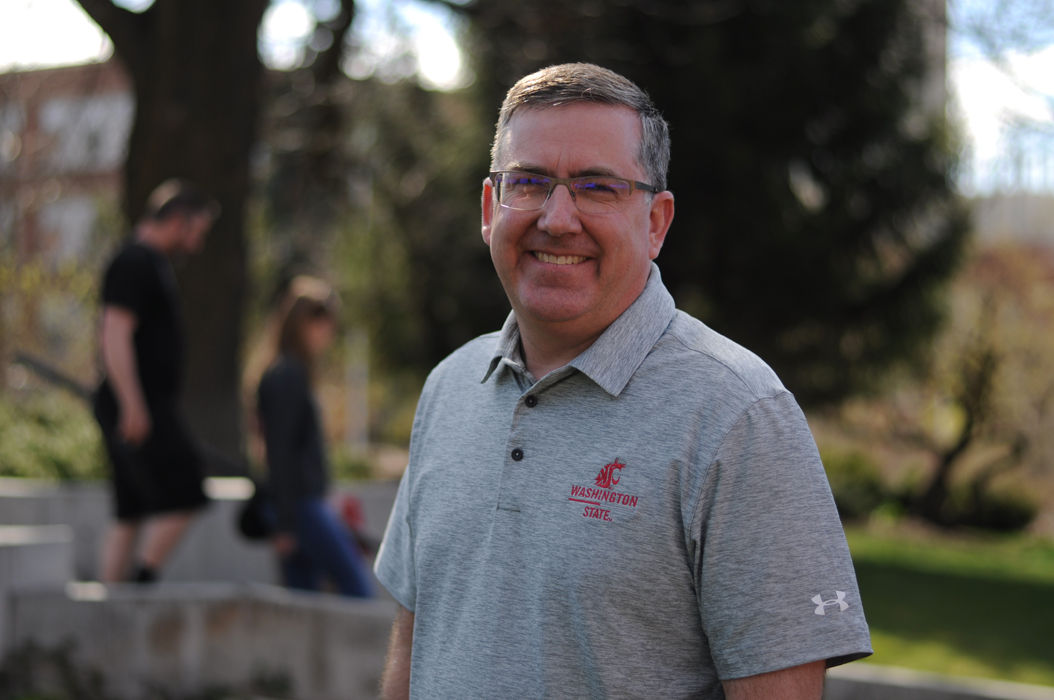#DearWSUPres: Giving students a voice
President-elect Kirk Schulz poses for a photo on April 2 during his first visit to WSU’s campus since his selection.
April 19, 2016
In case you haven’t heard or didn’t know, three communication students at WSU have launched an online Twitter campaign using the hashtag #DearWSUPres to facilitate a student-led conversation with our new president-elect Kirk Schulz.
This is not the first time our university has taken to social media to improve the quality of life here at WSU. However, it is the first time I have seen such a minimal response from WSU students.
Admittedly, I didn’t know the campaign even existed until I was scrolling through one of the WSU pages and found someone had retweeted something.
Maybe some of you remember when WSU launched the #DearWSU campaign and offered lists of suggestions, including answering the question of why there are handles on the doors to the CUB when they push open and addressing things from minor leaks in faucets to larger issues of student life including the cost of textbooks, the newly planted stinky trees, more rentable electronics and water refill stations.
While I am not a huge fan of social media, I realize in situations like this it can be beneficial for everyone. But, when it comes to tackling the larger social issues on campus like sexism, racism, classism and heteropatriarchy, social media turns from being a helpful tool into a raging dumpster inferno.
Our beloved university has a nasty little habit of not addressing issues until they “become issues.” I feel social media can be useful for bringing all kinds of attention to issues the university might be reluctant to hear or not know about.
Students want to feel like their university has their back and is actually looking out for them and their best interests, which is why programs like Women’s Transit and other groups exist. They exist to fill a need within our community.
Social media can serve as a platform for suggestion and to help WSU become one of the best places for students to go to school in the region or even the nation.
My hope is that going forward students will continue to use #DearWSU and #DearWSUPres to keep the conversation going about student issues.
Disenfranchised students should also take to social media to help push forward plans for inclusion, visibility and validation of students’ voices and views.
When you are using social media, no one can see the color of your skin or what religion you practice, so as far as the university knows you are just a concerned student, and while to some extent social media causes erasure on cultural heritage and background, it does bring equality to the voices it carries.
As students, you have the power to influence change — no matter who you are.
If you have any useful or creative suggestions to make you can follow @WSUPullman, @WSU_Cougar_Pres, and @DearWSUPres and tweet them directly or simply use #DearWSUPres or #DearWSU.





















